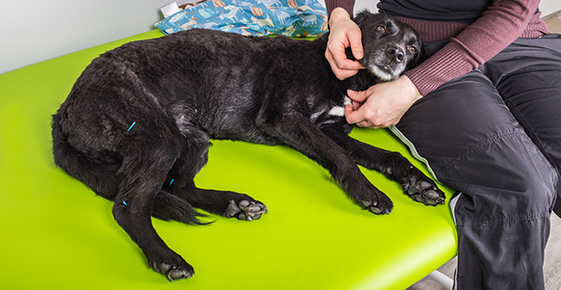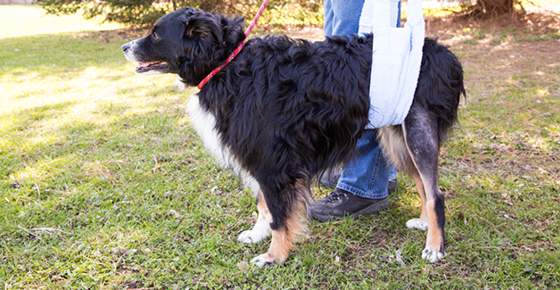
by animaldogs | Nov 2, 2023 | Recognizing Illness
Has your pet suddenly started losing hair? Mange may be to blame. The common skin condition affects dogs, cats and rabbits, causing a variety of uncomfortable symptoms. Tiny Mites Cause Big Problems Mange is caused by a mite infestation. The microscopic parasites...

by animaldogs | Nov 1, 2023 | Recognizing Illness
If your pet is suffering from pain or another illness but not responding to traditional veterinary care, veterinary acupuncture may be an effective treatment option. Veterinary acupuncture is very similar to the type of acupuncture used to treat humans. Long, thin...

by animaldogs | Nov 1, 2023 | Recognizing Illness
Leptospirosis is a bacterial, worldwide disease that can also affect humans. Dogs are usually exposed by contact with the urine of affected animals, often wildlife, or by drinking contaminated water. There is a vaccine that can protect dogs from four strains of Lepto....

by animaldogs | Nov 1, 2023 | Recognizing Illness
Addison’s disease is an endocrine disorder where the adrenal glands, near the kidneys, fail to produce enough hormones. This disease is relatively uncommon (approximately one case per 3000 dogs) but it is more common in dogs than humans. It is very rare in cats....

by animaldogs | Nov 1, 2023 | Recognizing Illness
A tumor (also known as neoplasm) is an abnormal growth of cells; this growth may be either benign or malignant. Benign tumors do not spread throughout the body and often have a limited impact on a pet’s overall health. Malignant tumors can develop in one location,...

by animaldogs | Nov 1, 2023 | Recognizing Illness
Canine hip dysplasia is the abnormal formation of the hip joint and one of the leading causes of rear leg lameness in dogs. Hip dysplasia is most prevalent in larger breed dogs, especially German Shepherds, Golden Retrievers, Labradors, Saint Bernards and Rottweilers....







